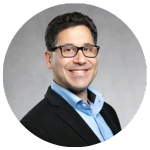As advances are made in communication technology, it becomes easier for individuals to seek out the expertise of medical professionals who are the leaders in their respective fields of practice even where the practitioner maintains a practice in another state (or even in another country). The term “telemedicine” refers to the use of technology for the delivery of health services where the patient and the provider are not in the same physical location.
As a general matter, the laws governing telemedicine in the United States are governed on a state level as opposed to on a federal level. This means that these laws vary by state. Significantly, the relevant law is the law of the patient’s location of residence, not the law where the practitioner is situated. Accordingly, a physician who connects with patients from various states via videoconferencing technology may need to obtain licensure for the practice of medicine in the states where the patients live.
Some states explicitly address telemedicine in their state medical licensing laws. These states define what constitutes telemedicine and articulate the necessary licensure requirements for those acts. In several states, there are more limited licensure requirements if a physician seeks only to perform telemedicine with respect to patients who live in the state.
Other states indirectly address telemedicine by virtue of a very broad definition of the “practice of medicine” in their physician licensing laws. Such broad laws subject out-of-state physicians to the full licensing requirements of that state if they seek to perform any form of health care services for a resident of that state via a means of technology.
The Consultation Exception
Many state licensing statutes provide a limited exception to enable an out-of-state physician to provide consultation with regard to a patient without the need for a medical license in that state. Though it varies by state, the overriding principle is that the contact by the out-of-state physician must be extremely limited (such as, for example, no more than 10 times per year in one state) and sporadic, and typically requires the direct involvement of a local physician in the state of the patient’s residence. The consultation exception includes the physician’s review of medical records and participation in management of the patient via direct contact with a local supervising physician who can monitor the patient and engage in follow-up care. This exception is typically used for second opinions.
Federally Regulated Controlled Substances and Telemedicine Registration
A DEA registration in a state is required when a controlled substance is dispensed by a physician to a patient residing in that state. The DEA and courts have taken the position that prescribing a controlled substance to a patient located in another state is the same as “dispensing” a controlled substance in that state. While enforcement has not necessarily been aggressive in this area based on information from a contact with connections within the DEA, recent concerns about addiction, substance diversion and associated crime have fueled more aggressive oversight and tracking of physicians prescribing controlled substances.
Unless a special exception applies (or a waiver sought and obtained), the federal government requires that a physician practicing telemedicine and prescribing controlled substances for patients consulted remotely in another state apply for a special registration for the practice of telemedicine in the state in which the patient will be located when receiving the controlled substance prescription.
Author
-

Ron Lebow is the Founder of Lebow Law, P.C. Mr. Lebow focuses his practice on business, contract, corporate and regulatory matters. He has extensive experience drafting and negotiating agreements and structuring operations and business arrangements for multi-specialty groups, ambulatory surgery centers, urgent care centers, hospitals, clinical laboratories and other medical providers. Additionally, he routinely works with physicians, podiatrists, chiropractors, dentists and a wide range of other health care professionals. He also advises management companies, private investors and venture capitalists. Further, Mr. Lebow has significant experience with healthcare-related, web-based and mobile app start-up business ventures.
View all posts





